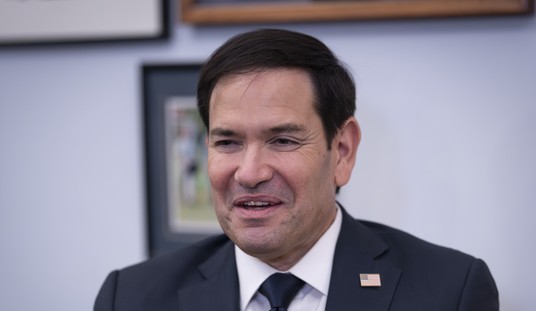Today is a day for joy. Hosni Mubarak has stepped down immediately as President of Egypt. Following on the heels of the departure of Ben Ali in Tunisia, we are witnessing the hitherto unprecedented spectacle of the people of a Muslim Arab state rising up in protest, of their own initiative, and throwing off a remarkably well-entrenched dictator. We rejoice in the spectacle because we are Americans; it’s who we are. We know our system, even in the worst of hands, remains the best in the world, and we want to see others share in those same blessings.
But after the initial wave of joy subsides, the Egyptian crisis is far from over, and there are some important lessons to be learned.
1. The Price of Peace Processes: The United States has, for decades, been a major financial supporter and military supplier of the Mubarak regime. How’d that happen? The roots go back to the Camp David Accords that settled the conflict between Egypt and Israel that had been a major cause of the 1967 and especially 1973 wars. The Carter Administration, to facilitate peace, promised billions in aid to both parties, essentially in perpetuity. When Egyptian President Anwar Sadat – no democrat himself – was assassinated in 1981 by Islamic extremists tied to the Muslim Brotherhood and his Vice President, Mubarak, seized power and instituted “emergency” powers, the Reagan Administration continued U.S. support, which has remained constant through the next four Administrations.
The Camp David Accords are justly regarded as the high point of the otherwise disastrous Carter presidency, and I don’t criticize President Carter for being willing to pay off the Egyptian regime to buy what has turned out to be the closest thing to durable peace between Israel and any of its hostile neighbors. Nor do I fault subsequent presidents for determining that other priorities – including peace with Israel, the Cold War, the first Gulf War coalition, and the hunt for Al Qaeda – were more important for U.S. interests than liberating Egypt from the yoke of Mubarak’s tyranny, even if that meant giving Mubarak a perverse incentive to use state-run media to stoke the radicalism of his own people and thus make the alternative to Mubarak even less palatable. But fans of diplomatic peace processes need to recall that honoring deals to prop up nasty dictatorships who play precisely that game is very often the price of negotiated peace. Every time we sit down to talk with Ahmadenijad or Kim Jong-Il or scores of other despots around the world, we enter into the very same compromise that Jimmy Carter made with Sadat and that has endured with his successor for three decades.
2. Obama Will Do Nothing For Democracy: As I said, I don’t fault any American president for siding with Mubarak while he was in firm control of Egypt. The long-term goal of American foreign policy is the worldwide spread of democracy, free markets, the rule of law and human rights – but it has never been practical to demand all those things everywhere at the same pace. If you are against all dictators equally at once, you are actually a threat to none of them; that’s why it’s so misguided when liberal Democrats are so often hot to put pressure on any dictator other than the one the U.S. is most interested in toppling at a given time, ensuring that our efforts will be diluted to nothing. That being said, it is useful for the dictators among our allies to be reminded that they are our allies only so long as they remain useful to us, and not a second longer; we are permanent friends to liberal democracies, but unfaithful to tyrants who deserve no better.
It would have been better for short and medium term U.S. interests if the Egyptian people had not risen up against Mubarak…but once the people began demonstrating in the streets, the dynamic changed. The Administration had an obligation, if it intended to demonstrate American seriousness about the sincerity of our belief in popular sovereignty, to take up the cause of the demonstrators and call for Mubarak’s ouster.
Obama couldn’t do it. Mubarak’s Cairo was, after all, the place where Obama had chosen as the site for his “address to the Muslim world” in 2009 (in which he grandly pronounced that “[n]o system of government can or should be imposed by one nation by any other”), ignoring objections at the time that he should not lend his imprimatur to Mubarak’s tyranny. As Josh Trevino details, Obama has declined at every turn – from Cairo to Teheran to Honduras – to support democracy when it was in crisis abroad, refusing to speak up even mildly against Mubarak in his hour of crisis and sending Joe Biden out to whitewash the nature of his regime. Obama’s fixation on negotiations with stable heads of state – like his recent arms deal with Putin’s Russia – overrides any commitment to standing with the people. To the extent that the situation in Egypt can be read as a triumph of democracy (still questionable, but to the average Muslim in the street today it looks like one), nobody will have any illusion that Obama was more than a passive observer.
3. Obama Will Do Nothing To Head Off A Worse Outcome: Where do we go from here? For today, Mubarak is gone, although it’s not entirely clear that we’ve avoided the Putin-esque result of a new government that is essentially still under his control. Reports at the moment also seem to suggest that his Vice President and previously presumptive successor, Omar Suleiman, is out too, taking with him his record of torturing prisoners. Assuming both are genuinely out, however, what we have in the short run is a military junta, and history doesn’t give us the greatest of confidence that those are really temporary.
But if Egypt moves beyond a junta, there is a very real possibility that the Muslim Brotherhood will form a menacing part of the new government. Longtime Democratic pollster Doug Schoen details the support the Brotherhood has in Egypt. It’s true, as was true in the pre-9/11 Taliban and of the original supporters of the Iranian Revolution against the Shah, that the Brotherhood’s broad support includes a lot of people who don’t mean to be backers of terrorism and sharia law, but if the Brotherhood gains power, the good intentions of the average Muslim in the street won’t count for much, anymore than they did in Iran or Afghanistan, or for that matter the fact that not every German who voted for the Nazis in 1933 meant to create what followed. Michael Weiss details many of the things the Muslim Brotherhood’s leadership has said even in recent years, and that’s before you get to the extent to which the organization was in many ways the grandfather of radical Sunni terrorist groups like Al Qaeda. Yet the Administration, consistent with its soft line on Hamas and Hezbollah, has refused to take a hard line against the Muslim Brotherhood’s participation in a new Egyptian government, and the Director of National Intelligence actually, laughably tried to pass the group off as “secular” (a description that doesn’t even survive contact with the first word of the organization’s name).
To be sure, there is a shortage of good options to go around in Egypt, and real limits to what the United States can do (it will be especially hard for Obama, having sat on his hands during the protests, to try to take any seat at the table in telling the Egyptians what kind of government we will accept, even with the huge leverage provided by U.S. aid). But combined with serious questions about the competence of the people who are supposed to be advising the President on this, it’s hard to have confidence that we’ll see anything but a continuation of the Administration’s policy of looking as weak and reluctant as possible.
4. Protest Is Contagious: It’s still unclear how and when the protests in Egypt were planned and organized – popular revolutions generally require somebody to set the spark, and what we see in public (such as the self-immolation that set off the immediate round of protest) is not always the whole story. But clearly, they were triggered at least in part by popular awareness of the revolt in Tunisia, and the similar unrest in Yemen and Jordan seems to be following in Egypt’s footsteps. Dangerous as the threat of takeover by Islamist movements may be, in the long run, this is a necessary step in the long-term reform of the Muslim and Arab worlds: the people of the region are sooner or later going to need to take responsibility for their own futures. That was, to many of us, the crucial element of the Bush Administration strategy that included the war in Iraq and showed its first (if mostly abortive) flowering in the spring of 2005: the idea that Iraq would provide an alternative model of self-governance to the continued toleration of failed states under brutal tyrants. That model still has a long way to go – as Christopher Hitchens argued for years, Iraq was in danger of a violent unraveling at the end of Saddam’s reign whether we invaded or not, and as Meghan McArdle explains, much as in the former Soviet bloc, the elimination of centralized tyranny has made it harder to stamp out local corruption. But it remains nonetheless the case that as the Egyptian people agitate for the downfall of a tyrant, they have an example to look to of how a Muslim Arab country could move forward after being rid of one. (And Egypt is not Iraq; who controls Cairo, controls Egypt).
As Rany Jazayerli argues, another aspect of that contagion is Al Jazeera. Al Jazeera’s biases are well-documented, but it is no friend of secularized tyrants, and it has been the most effective channel for informing the peoples of the Arab world of events in their region and the nature of their regimes. Combined with the internet, that creates a new dynamic – not one that can guarantee free government, but at least one that should frighten dictators.
5. A Deal To Go Is A Deal To Go: One wonders how much faster Mubarak – as the head of a famously corrupt regime – could have been removed if he’d been genuinely assured of a quick escape. But when a dictator is wobbling and is approached about leaving, he must always bear in mind the example of Augusto Pinochet, who cut a deal to voluntarily step down from a brutal dictatorship in Chile in 1990, only to be indicted and arrested by Spanish authorities eight years later. I shed no tears for Pinochet, but his escape deal, like a plea agreement, should have been honored for the precedent it set. Mubarak was undoubtedly reluctant to believe any promises that he could leave safely.
—
So, rejoice today in Egypt’s moment of hope. But moments of hope have come and gone around the world before – the revolutionary moments of 1789, 1848, 1919, 1968, 1989 and 2005 all had more casualties than successes. The way forward will present Egypt with the twin threats of military dictatorship and extremist Islamist rule, and the Obama Administration can be trusted to provide neither competence, consistency, decisiveness, idealism nor realpolitik. Hope doesn’t always end with change anyone can believe in.














Join the conversation as a VIP Member